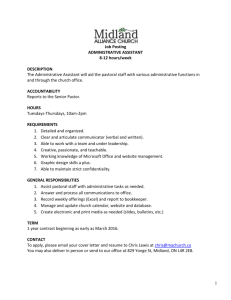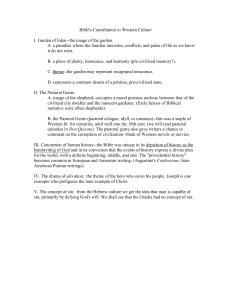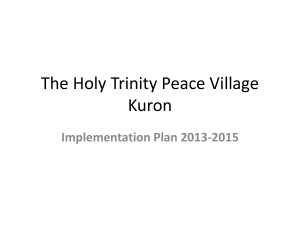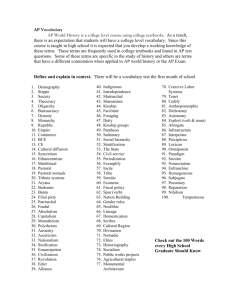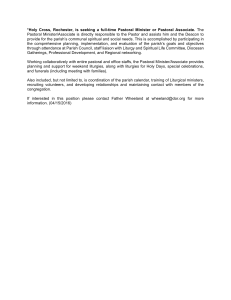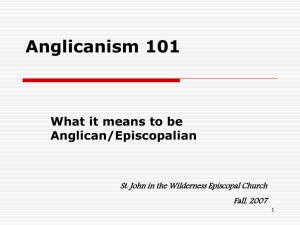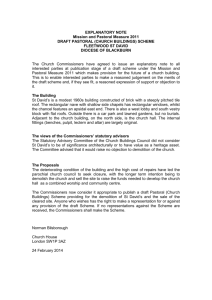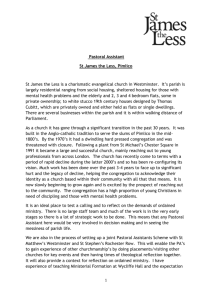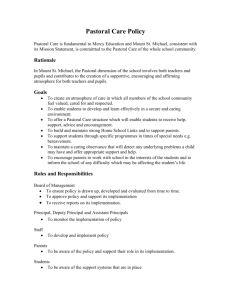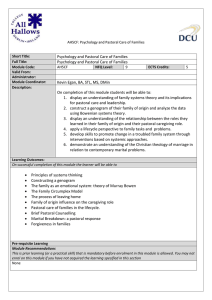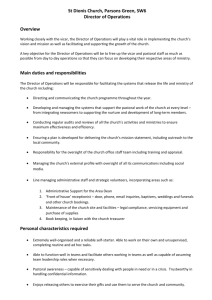Annual Report PowerPoint Holy Trinity Peace Village Kuron
advertisement
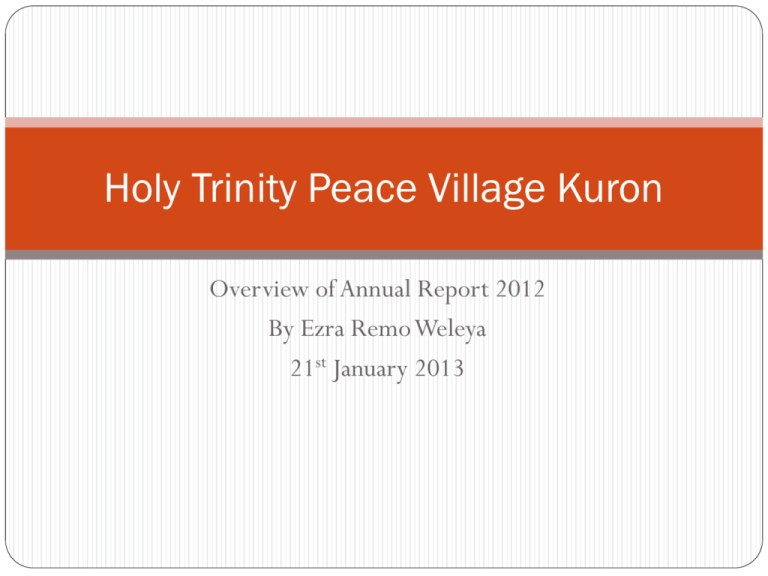
Holy Trinity Peace Village Kuron Overview of Annual Report 2012 By Ezra Remo Weleya 21st January 2013 Map of Kauto Payam Villages by permission of Carter Centre Introduction How do we achieve “peace and development” in Kuron? By understanding the culture of the Pastoral Communities and the socioeconomic context By programming peace and development projects around the kraal and alongside the cattle keeping culture and allow the Toposa own the process of development By appreciating Toposa culture by learning their language, balancing between safety and risks to “Toposa Cows”, reducing violence against women and children, increasing livelihood bases that provide the essentials of their existence and agreeing for change to begin from within rather than imposed upon them. Vision and Mission statements Vision An oasis of peace where diverse communities live harmoniously for holistic and sustainable development Mission Statement To reduce ethnic conflicts for better livelihoods and integral sustainable development Overall Goal The overall goal of this programme is rooted in long term peace building among pastoral communities that engages them in development initiatives in The HTPVK HTPV Kuron Core values Love Faith Dignity and respect Solidarity Transparency Accountability Networking Equity Justice and Peace Background of HTPV Kuron Village HTPV Kuron was conceived in 1999 and came into reality in 2004 after the retirement of Bishop Paride Taban HTPV Kuron is officially allocated an area of 10 sq kilometres for its development programmes Officially registered as a NGO in March 2012 Target group mainly Toposa among other pastoral neighbouring communities Governance – by Board of Directors, Director and, Managers Overview of Organization Achievements The technical and managerial capacity of the organization was strengthened in the areas of programme, financial management and administration The five projects achieved most of the set annual targets set for 2012 in agriculture, health, education, peace and community development and pastoral work. Partnerships and networks HTPV works in partnership with government, NGOs and local communities, enhancing participatory and people centred approaches Local Labour Mobilization - through work-for-less needed second-hand clothes from Europe was a successful method of mobilizing much needed local labour from communities in Kuron Village Local community awareness of HTPV as a “peace village” is gaining ground in the region among the pastoral groups in Kenya, Uganda & South Sudan – regional outlook! On-going Projects in 2013 Construction and building teachers houses, girls’ dormitory and library at St. Thomas Primary School, Vocational Training School, Sisters’ Residence Solar pumped water systems at the Health Centre Agriculture starter kits will be purchased in January Major implementation challenges Unpredictable weather conditions and heavy rains caused inaccessible road links most of 2012 Expensive air transport raising overall costs High illiteracy rates in the communities Understaffing in Kuron Primary Health Care Lack of strong vehicles and motorcycles for field/extension work High seasonal movements of pastoral communities create difficulties in timing field activities Delays in financial transfer and bank processes The way forward 2013 will be a year of integration and consolidation at project and administration levels The 2013-2015 Implementation Plan (IP) will take into account the current technical, professional and administrative capacity of HTPV HTPV has learnt from its work the importance for timely implementation, communication, monitoring, reporting and evaluation of projects and become a better result oriented organization Balance between staff benefits and hardships to maintain high staff motivation to invest needed time on the organization business HTPV New Organizational Chart Board of Directors (11) Director Deputy Director Department Managers (Construction, Liaison. Common Support/HR, Finance/Logistics & Programme) Coordinators (Building, Agriculture, Health, Education, Peace & Community Development and Pastoral Work) Conclusion Alakara Nooyi and thank you for listening. Welcome to Kuron!
